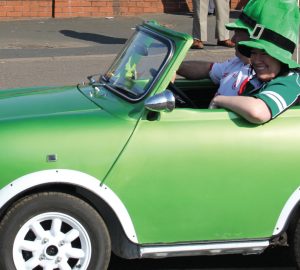Protecting your trademarks and copyright with Rafique Patel, Senior Partner at Bond Adams Solicitors

During the Christmas and new year period, the number of online trader’s quadruples in hopes to take a slice of this very lucrative market.
The cost of IP protection is notoriously high, particularly if you are seeking worldwide protection. It is a common misconception that protection only arises, when a registration of a particular intellectual property right is successfully achieved. This article seeks to dispel that misconception by giving a brief introduction to some of those intellectual property rights that exist upon creation, or which otherwise arise without the need for any application for registration and the accompanying fees.
Copyright
Copyright automatically arises on creation of an original work. Copyright applies to a broad category of works – literary, dramatic, musical, or artistic works; sounds recordings; films; broadcasts; and typographical arrangements of published editions, such as books.
Copyright protection generally runs from the date of creation, or recording, of the copyright work, and lasts until the expiry date. The expiry date will vary depending upon the category the work falls into. For literary, dramatic, musical or artistic works and films, the copyright lasts for a period of 70 years from the end of the year of death of the author. For sound recordings and broadcasts, the relevant time is 50 years from the end of the year in which the sound recording was made or published. For typographical arrangements (e.g. the arrangement of a book) it is 25 years from the end of the year in which the edition was first published.
Trademarks and ‘Passing Off’
A trademark is a sign which can distinguish your goods and services from those of your competitors and is capable of registration at the Intellectual Property Office. Through registration, you have exclusive rights to use the trademark and can take legal action against any persons who use, during their business (and without your consent), a sign which is identical or similar to your trademark. However, if you do not register your trademark and someone uses your mark without your permission, you may still be able to claim relief through the common-law action of “passing off”.
Unregistered Design Rights in the UK and EU
Design rights protect the appearance of the whole or part of a product resulting from its features; specifically, lines, contours, colours, shape, texture and material. Not all designs qualify for design right, the design must be the shape or configuration of a product. While it is advisable to register these with the IPO, in the UK the owner of an unregistered design right does retain the right to act if an unauthorised person copies the design to produce a design that is the same, or substantially similar.
Summary
What this article seeks to show is that there is a certain level of protection afforded by intellectual property rights which arise without the need for registration. However, it is important to remember that investing time and possibly money in registering relevant intellectual property, can afford additional rights and / or courses of action in the event of an infringement.






